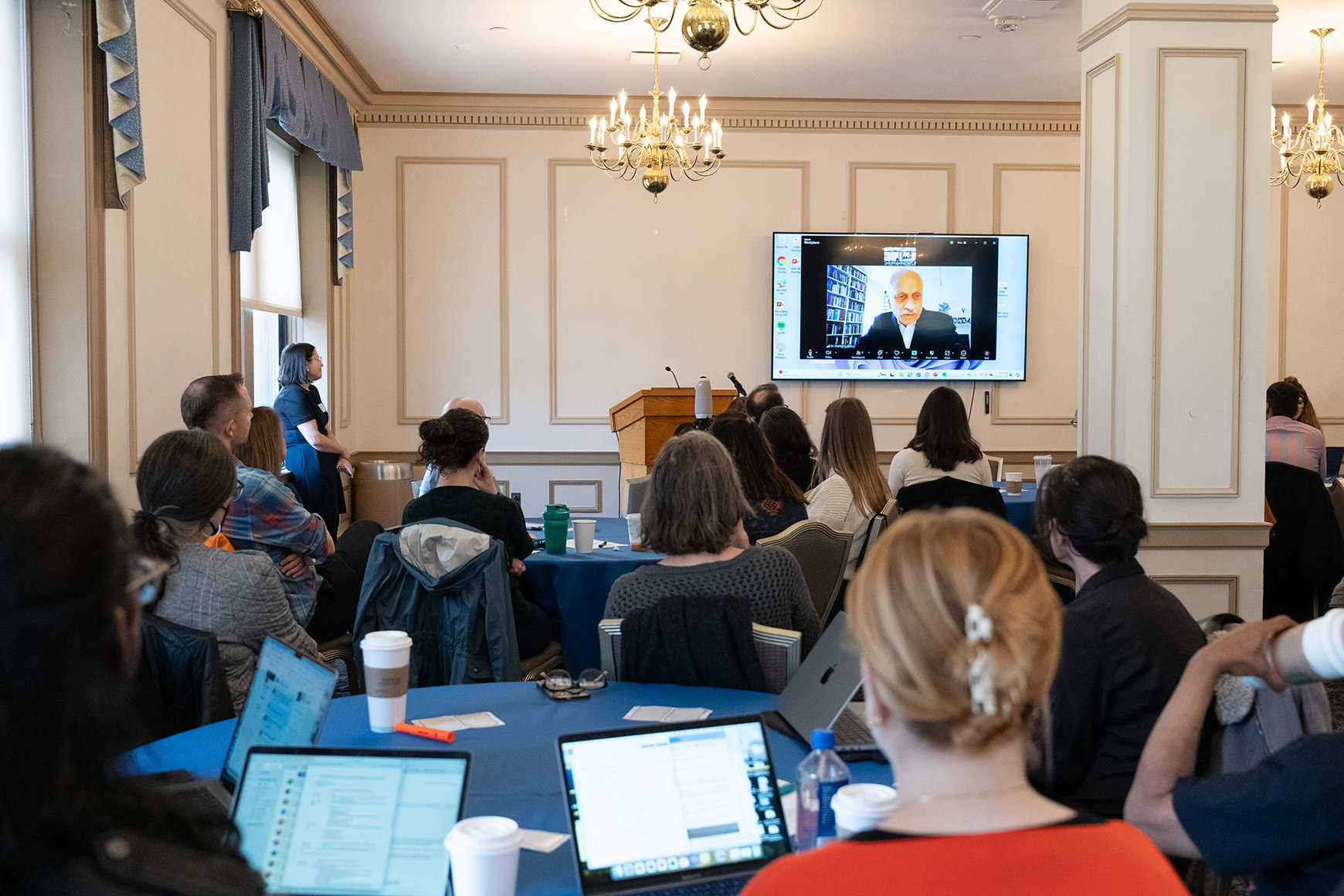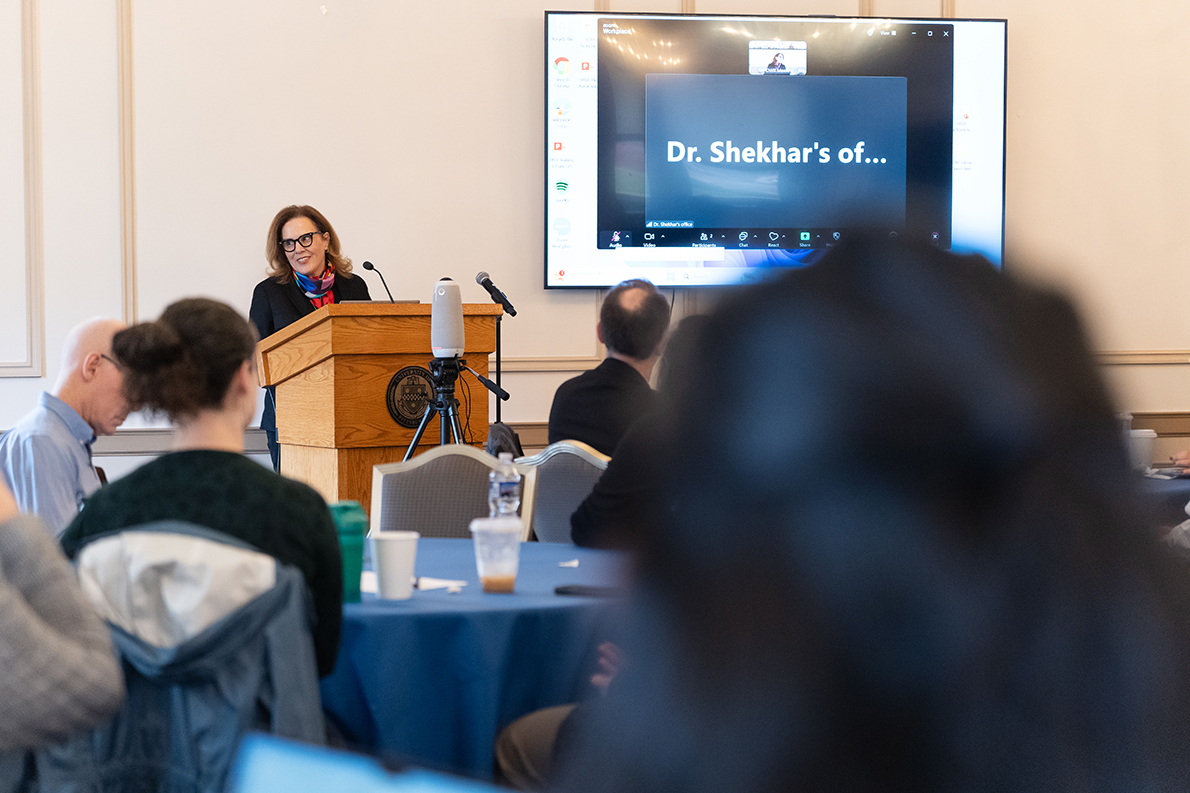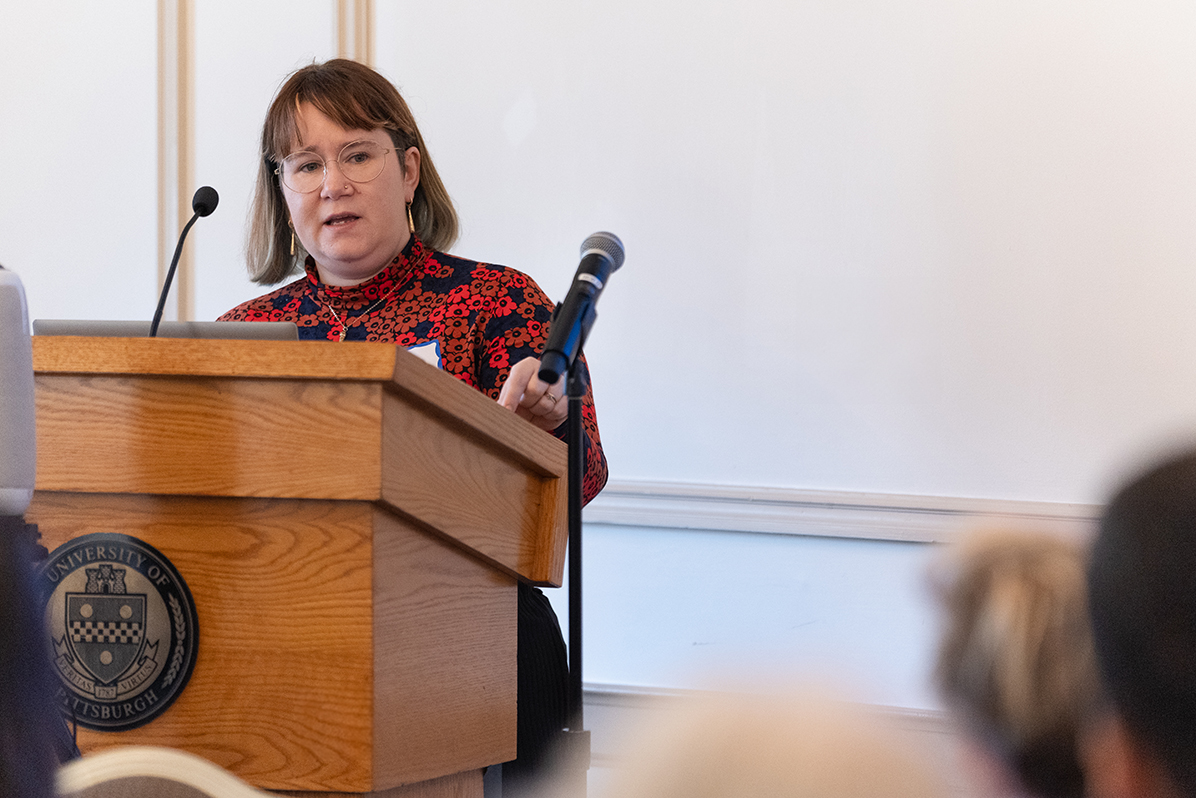By Kat Procyk

University of Pittsburgh researchers welcomed visitors from the National Institutes of Health (NIH) on Nov. 18 to showcase their efforts to improve the lives of people living with both opioid addiction and chronic pain. The event, an annual retreat for the Integrative Management of chronic Pain and OUD (Opioid Use Disorder) for Whole Recovery (IMPOWR) network, also featured presentations from researchers and investigators from the network’s four centers.
In her opening remarks, Pitt Chancellor Joan Gabel noted that the initiatives being led by IMPOWR and the Tailored Retention and Engagement for Equitable Treatment of OUD and Pain (TREETOP), Pitt's dedicated center, align with the University’s commitment to service.
“We really have been thinking of late about how we lean into people and place and serving the way we uniquely can,” Gabel said. “Sometimes that’s motivated by or inspired by where you are and sometimes that’s very much motivated by and inspired by who you are.”

Led by coprinciple investigators Erin Winstanley and Jessica Merlin and scientific director Melessa Salay, TREETOP investigators have been interviewing patients and staff at participating clinics across West Virginia and Pennsylvania, to develop pain self-management interventions for people with both opioid use disorder and chronic pain. These interventions will also be tested alongside medication-based interventions like the higher-than-average doses of a medication commonly used to treat OUD, buprenorphine. Their hope is that these interventions will not only treat their pain, but it will also allow them to better engage or be retained in care for their OUD.
“Throughout these interviews, we’ve found that many of our study participants have a history of trauma and internalized stigma,” said Merlin, professor of medicine, School of Medicine. “Addressing stigma is something we need to incorporate into treatment for it to be effective.”

Megan Hamm, assistant professor of medicine, School of Medicine, and leader of the data collection and analysis for TREETOP, said patients reported stigma due to multiple intersecting identities, including being Black, gender diverse or overweight/obese, which can lead to the perception that pain is dismissed by medical care professionals. A behavioral pain self-management treatment is being developed that can take this into account.

Anantha Shekhar, senior vice chancellor for the health sciences and John and Gertrude Petersen Dean, School of Medicine, commended IMPOWR for its work in understanding and treating patients living with OUD and chronic pain, noting that the network demonstrates research and practice at its best.
“IMPOWR is one of those great networks that can test all the way from medications to psychotherapy to exercise and self-management and do them in a much more controlled, scientific manner,” said Shekhar.
IMPOWR is funded by NIH’s Helping to End Addiction Long-term (HEAL) Initiative with its three other research centers located at the University of New Mexico, Yale University and Albert Einstein College of Medicine. Wake Forest University serves as the network’s coordination and dissemination center.
